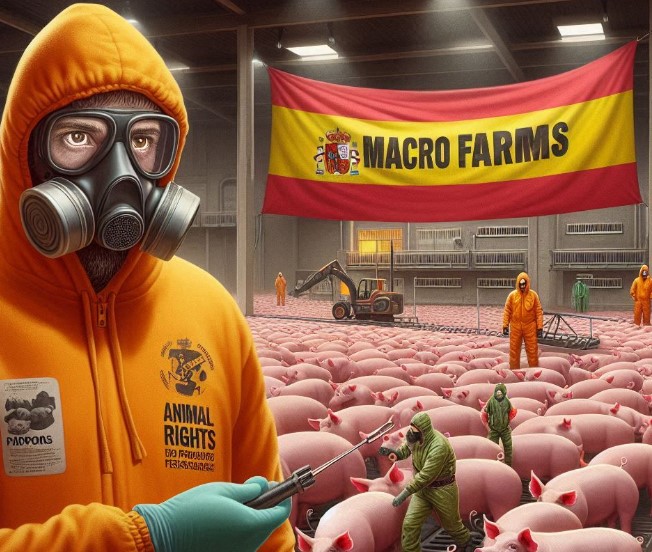A new, explosive animal rights report is bringing Spain’s so-called “macro-farms” into focus, reigniting the debate about the future of European livestock farming. The organization AGtivist has presented a report that denounces the existence of over 22,263 industrial chicken and pig farms in the EU, with a particular emphasis on Spain. The country is reported to have experienced the largest growth in this sector over the past decade.
AGtivist Report: Figures and Accusations
The report by AGtivist, a well-known animal rights organization with a clear stance against the intensive farming model, provides detailed figures. According to the report, there are 10,862 poultry farms in the European Union, each housing at least 40,000 birds, and 8,854 pig farms, each housing at least 2,000 pigs. Notably, 2,547 of these pig farms specialize in breeding pigs.
The growth over the last decade is particularly striking: “2,746 mega-farms have been put into operation in the EU, with the highest rate of development recorded in Spain, where 1,385 new industrial farms were established in the last ten years,” the report states. It further highlights that “Spain has the largest number of industrial pig farms, with 2,580 fattening farms and 821 breeding farms.” These figures bear a striking resemblance to the data from the Spanish Ministry of Agriculture’s 2023 annual report.
The Ministry underscores the importance of the pig sector for Spanish agriculture and the rural economy. With over 86,000 farms and a stock of more than 30 million animals, this sector is a pillar of the national economy. Although there is no official definition of the term “macro-farm,” the Ministry estimates that about 3,217 farms meet the criteria to be considered “large,” i.e., those housing more than 2,000 fattening pigs (over 30 kg) or more than 750 breeding sows.
Structural Inequality and Regulatory Pressure
The AGtivist report also identifies a worrying structural inequality: while the number and size of “mega-farms” in the EU are increasing – a 56% rise between 2005 and 2020 – over 5.3 million small and medium-sized farms have disappeared during the same period, representing a 44% decline.
However, a critical assessment suggests that it is too simplistic to solely blame large farms for this disappearance. The report deliberately ignores the considerable pressure exerted by regulations promoted by the animal lobby. Examples include the end of cage farming, the reduction in the number of animals allowed, and new requirements for the transport of live cattle. This regulatory pressure, coupled with suffocating bureaucratic burdens, creates a difficult environment for family farms with limited resources and contributes to their disappearance.
The Animal Welfare Debate: Facts and Campaigns
The animal rights report laments that over 516 million animals in the EU live under precarious conditions of industrial exploitation. Regarding Spain, it states: “Local research shows the concentration of pigs in intensive farms, where they live in overcrowded and unsanitary conditions, suffering injuries and diseases without treatment.”
Critics argue that the report fails to distinguish between legal, well-managed farms and isolated cases of misconduct. It also does not refer to the conclusions of the 2024 annual animal welfare report from the Ministry of Agriculture, which states that “Spanish livestock farming complies with strict regulations on animal welfare and ecological sustainability and is monitored by official controls.”
Leading animal rights organizations, such as Eurogroup for Animals, are using this report to advance their campaign to criminalize meat consumption and reduce or abolish farms, often without considering the implications for the rural environment, employment, European food sovereignty, or individual freedom.




